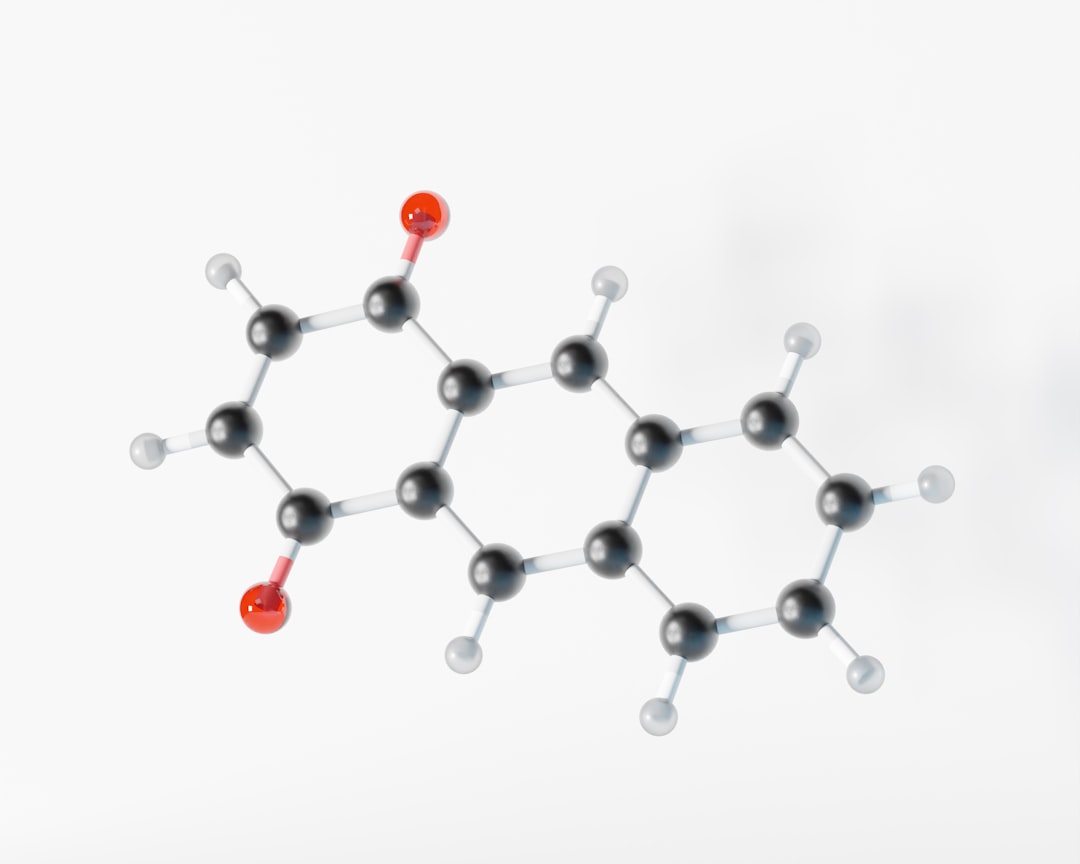Phenylephrine is a common ingredient found in many over-the-counter medications, particularly those aimed at relieving nasal congestion. As a sympathomimetic amine, it primarily acts as a decongestant by constricting blood vessels in the nasal passages, which reduces swelling and congestion. You may have encountered phenylephrine in various forms, such as tablets, liquids, or nasal sprays, often marketed for cold and allergy relief.
Its widespread availability and use make it a staple in many households, especially during cold and flu season. Despite its popularity, the efficacy of phenylephrine has come under scrutiny in recent years. As you navigate the aisles of your local pharmacy, you might wonder about the effectiveness of this seemingly ubiquitous medication.
The ongoing debate surrounding its actual benefits versus its perceived benefits has sparked interest among consumers and healthcare professionals alike. Understanding the nuances of phenylephrine is essential for making informed choices about your health and well-being.
Key Takeaways
- Phenylephrine is a common ingredient in over-the-counter decongestants used to relieve nasal congestion.
- There is ongoing debate surrounding the effectiveness of phenylephrine, with some studies suggesting it may be no more effective than a placebo.
- Understanding placebos is crucial in evaluating the true efficacy of phenylephrine and other medications.
- The placebo effect can influence the perceived effectiveness of phenylephrine, making it challenging to determine its true impact.
- Studies on phenylephrine have yielded conflicting results, contributing to the controversy surrounding its efficacy.
The Debate Surrounding Phenylephrine
The debate surrounding phenylephrine centers on its effectiveness as a decongestant. While many people swear by its ability to relieve nasal congestion, recent studies have raised questions about whether it works as well as advertised. You may have heard discussions about how some experts argue that phenylephrine is no more effective than a placebo.
This contention has led to a growing body of research aimed at determining the true efficacy of this medication. As you delve deeper into this topic, you might find that the controversy is fueled by conflicting study results and varying opinions among healthcare professionals. Some studies suggest that phenylephrine does provide relief for certain individuals, while others indicate that it may not be significantly more effective than simply taking nothing at all.
This inconsistency can leave you feeling uncertain about whether to trust phenylephrine for your congestion relief needs.
Understanding Placebos

To fully grasp the debate surrounding phenylephrine, it’s essential to understand the concept of placebos. A placebo is an inert substance or treatment that has no therapeutic effect but can still produce a psychological benefit for some individuals. When you take a placebo, your brain may trigger a response based on your expectations of relief, leading to an improvement in symptoms even though no active ingredient is present.
The placebo effect is a fascinating phenomenon that highlights the power of the mind in influencing physical health.
This psychological response can complicate the evaluation of medications like phenylephrine, as it raises questions about whether any observed benefits are due to the drug itself or the placebo effect.
The Placebo Effect
| Study | Findings |
|---|---|
| Study 1 | Placebo treatments can have a real effect on the body. |
| Study 2 | Placebos can activate the brain’s natural painkillers. |
| Study 3 | Placebo effects can vary based on individual differences and expectations. |
The placebo effect can be particularly pronounced in conditions like nasal congestion, where symptoms can fluctuate based on various factors, including environmental triggers and individual perceptions. When you take a medication like phenylephrine, your expectations can significantly influence your experience of relief. If you believe that the medication will work, you may be more likely to perceive an improvement in your symptoms, even if the drug’s actual efficacy is limited.
This phenomenon underscores the importance of understanding how psychological factors can impact health outcomes. As you consider using phenylephrine or any other medication, it’s crucial to recognize that your mindset can play a significant role in your experience. The interplay between expectation and reality can make it challenging to determine whether a medication is genuinely effective or if you’re simply experiencing the placebo effect.
Studies on Phenylephrine
Numerous studies have been conducted to evaluate the effectiveness of phenylephrine as a decongestant. Some research suggests that while phenylephrine may provide some relief for certain individuals, its overall efficacy is questionable when compared to other treatments. You might find it interesting that a systematic review published in recent years concluded that phenylephrine does not significantly outperform a placebo in alleviating nasal congestion.
However, not all studies agree on this point. Some research indicates that phenylephrine can be effective for specific populations or under certain conditions.
As you explore these studies, it’s essential to consider factors such as sample size, methodology, and individual variability in response to treatment.
The Role of Phenylephrine in Over-the-Counter Medications

Phenylephrine plays a significant role in many over-the-counter medications designed to alleviate symptoms associated with colds and allergies. You may have noticed that it is often combined with other active ingredients to enhance its effectiveness or target multiple symptoms simultaneously. For instance, you might find phenylephrine paired with antihistamines or pain relievers in combination products.
Despite its prevalence in these formulations, the ongoing debate about its efficacy raises questions about whether it should remain a staple in over-the-counter offerings. As a consumer, it’s essential to be aware of what you’re putting into your body and to consider whether the benefits of phenylephrine justify its inclusion in these products. Understanding its role can help you make more informed decisions when selecting medications for your health needs.
When considering options for nasal congestion relief, it’s essential to compare phenylephrine with other decongestants available on the market. You may be familiar with alternatives such as pseudoephedrine, which is often touted for its effectiveness in relieving nasal congestion. Unlike phenylephrine, pseudoephedrine works by acting on different receptors in the body and has been shown to provide more consistent relief for many individuals.
As you weigh your options, it’s important to consider factors such as side effects, availability, and personal preferences. Pseudoephedrine is often kept behind pharmacy counters due to regulations surrounding its use, while phenylephrine is readily available on store shelves. This accessibility may make phenylephrine an attractive option for some consumers, despite questions about its efficacy compared to other decongestants.
The Controversy of Phenylephrine’s Efficacy
The controversy surrounding phenylephrine’s efficacy continues to spark debate among healthcare professionals and consumers alike. As you navigate this complex landscape, you may encounter differing opinions on whether phenylephrine should be recommended for treating nasal congestion. Some experts argue that its widespread use is unwarranted given the lack of robust evidence supporting its effectiveness.
This ongoing discussion highlights the importance of critical thinking when it comes to health-related decisions. You may find it helpful to consult with healthcare professionals who can provide personalized advice based on your specific needs and circumstances. By staying informed and engaged in conversations about medications like phenylephrine, you can make choices that align with your health goals.
Uncovering the Truth: Is Phenylephrine a Placebo?
As you explore the question of whether phenylephrine functions as a placebo, it’s essential to consider the broader implications of this inquiry. If research continues to suggest that phenylephrine’s effects are largely attributable to the placebo effect, it raises important questions about how we approach medication use and consumer expectations. You might find yourself reflecting on how much trust we place in pharmaceutical products and whether we should be more discerning in our choices.
Ultimately, uncovering the truth about phenylephrine requires ongoing research and open dialogue among consumers, healthcare providers, and researchers. As new studies emerge and our understanding of medications evolves, it’s crucial to remain informed and adaptable in your approach to health care decisions.
The Importance of Consumer Awareness
In light of the ongoing debate surrounding phenylephrine’s efficacy, consumer awareness becomes paramount. As you consider using over-the-counter medications for nasal congestion or other ailments, it’s essential to educate yourself about the ingredients and their potential effects. Being an informed consumer empowers you to make choices that align with your health needs and preferences.
You might also consider discussing your options with healthcare professionals who can provide guidance based on current research and your individual circumstances. By actively engaging in conversations about medications like phenylephrine, you contribute to a culture of informed decision-making that benefits not only yourself but also others navigating similar health challenges.
Implications for the Use of Phenylephrine
In conclusion, the implications surrounding the use of phenylephrine are multifaceted and warrant careful consideration. As you weigh its potential benefits against the backdrop of ongoing debates about its efficacy, it’s essential to approach your health decisions with an open mind and a critical eye. While phenylephrine remains a popular choice for many seeking relief from nasal congestion, understanding its limitations and exploring alternative options can lead to more effective management of your symptoms.
As research continues to evolve and new insights emerge regarding medications like phenylephrine, staying informed will empower you to make choices that best support your health and well-being. Ultimately, being an engaged consumer allows you to navigate the complexities of over-the-counter medications with confidence and clarity.
The debate surrounding the efficacy of phenylephrine as a decongestant has garnered significant attention, particularly in light of recent studies suggesting it may function more as a placebo than an effective treatment. For further insights into the implications of such findings, you can read a related article on the topic at Hey Did You Know This. This article delves into the broader context of medication effectiveness and the importance of evidence-based treatments.
WATCH THIS! The $14 Billion Lie Hiding in America’s Drugstore
FAQs
What is phenylephrine?
Phenylephrine is a medication used as a decongestant to relieve nasal discomfort caused by colds, allergies, and hay fever. It works by narrowing the blood vessels in the nasal passages, which reduces swelling and congestion.
Is phenylephrine a placebo?
No, phenylephrine is not a placebo. It is an active ingredient in many over-the-counter decongestant medications and has been approved by regulatory agencies for the treatment of nasal congestion.
How does phenylephrine work?
Phenylephrine works by constricting the blood vessels in the nasal passages, which reduces swelling and congestion. This helps to relieve nasal discomfort and improve breathing.
Is phenylephrine effective?
The effectiveness of phenylephrine as a decongestant is a topic of debate among researchers and healthcare professionals. Some studies have shown it to be effective, while others have suggested that it may not be significantly more effective than a placebo in relieving nasal congestion.
Are there any side effects of phenylephrine?
Common side effects of phenylephrine may include increased blood pressure, headache, dizziness, and difficulty sleeping. It is important to use phenylephrine as directed and to consult a healthcare professional if you experience any concerning side effects.
